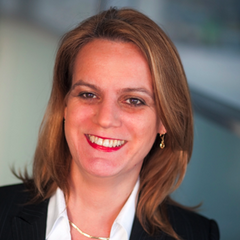Bringing your partner to the Netherlands? It is all about the money
De Vreede Advocaten is a young and dynamic law firm specialised in immigration and international employment law for both businesses and individuals.
Having sufficient financial means is one of the main requirements when applying for a partner permit in the Netherlands. The Dutch Immigration Service has a strict policy regarding the income requirement. However, this policy is not entirely in accordance with the law, as the following case shows.
The case
Recently, a Dutch national applied for a permit for his non-EU national partner. At the time of application, the Dutch national was not employed, nor did he work as a self-employed entrepreneur. In fact, his last contract had ended a year before the application. However, he did have around 125.000 euros of savings.
The Immigration Service decided that his income was not sufficient, and his application for a partner permit was therefore denied.
Dutch partner permit policy
For every partner permit application, the Immigration Service checks if the Dutch national, or non-EU national with a Dutch residence permit, has independent, sufficient and long-term income to support his or her partner.
Paid employment
In 2017, gross income from paid employment must be at least 1.565,40 euros a month (before social security and excluding holiday allowance). In 2018, the minimum gross income will be 1.578,00 euros. Surcharges and allowances (like the costs for travelling and housing) may be included in the income.
Additionally, one should have a permanent employment contract or a temporary contract, which is valid for at least 12 months from the day of application. If your contract is valid for less than a year, the Immigration Service will check whether the income in the year prior to the application was sufficient, and also whether there is sufficient income for the coming six months.
Self employment
A self-employed sponsor must earn no less than the statutory minimum wage. This means that the gross salary, including holiday allowance, must be at least 1.690,64 euros a month in 2017, and 1.704,24 euros a month in 2018. This income must have been earned for 1,5 years and continue to be received for another year from the day of application.
Income from your own funds
Income from your own funds (equity) is considered sufficient when 4% of these funds (this is the taxable income from savings and investments, declared by the Tax and Customs Administration), equals the income requirement of 1.690,64 euros a month (gross SV-income with holiday allowance).
As of 1 January 2018, there will be a slight change to the policy. Income from your own funds will be considered sufficient if the benefit from your savings and investments is at least equal to the income requirement of 1.704,24 euros gross per month. Please note that the benefit refers to "voordeel uit grondslag van sparen en beleggen", the income from the basis of savings and investments. The basis is your own funds minus the tax-free allowance.
Either way, it is difficult to meet the income requirement with your own funds. Considerable capital would be needed, somewhere in the region of 500.000 euros. You must have already been earning income from your own funds for one year and this income should be ongoing at the time of application.
Dutch law vs the Immigration Service
The Dutch national in this case had around 125.000 euros of savings, which means that the monthly income based on his own funds was around 420 euros per month. According to the Immigration Service, the sponsor did not meet the income requirement and thus the partner permit he had applied for was refused.
The Dutch court, however, regards the income requirement as a means to limit the risk that people will apply for social welfare. According to the European Court of Justice, the Immigration Service is not allowed to require a fixed minimum amount of income, and with 125.000 euros in the bank, this couple could easily support themselves.
Furthermore, the European Court has ruled that all aspects and interests of an individual situation have to be considered when judging future income. Based on his curriculum vitae, his age, education and work experience, it would have been reasonable to assume that the Dutch national would find a job in the near future. The court, therefore, decided that there was no reason not to submit the partner permit in this case.
Is it all about the money?
So, yes, it is all about the money. However, it is not only the money which is important, all circumstances in the individual case must also be taken into account.
Do you want to bring your partner to the Netherlands but you don’t meet the fixed income requirements according to the Immigration Service? De Vreede Advocaten can advise you on your options or assist you with the application.



COMMENTS
Leave a comment
Olaleye Cosby O... 20:24 | 5 February 2018